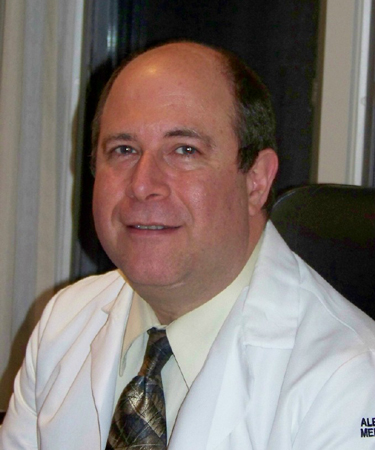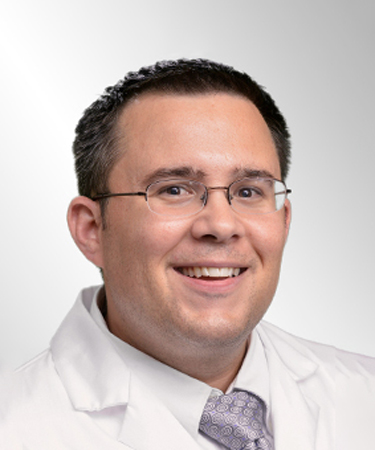Monday December 13, 2021 –
Thursday December 16, 2021
7:30am-12:50pm EST
DEC 13 – 16, 2021
Internal Medicine: A Practical Approach to Common Primary Care Problems
Event Details
When
Where
Lido Beach Resort
Sarasota, Florida
Event Code
SEMLA-3520211213
Course Topics
Day 1
Outpatient Anticoagulation Issues, Part 1.
Upon completion of this session, the participant should be able to: GL, EBM, COMP
- Manage outpatients on warfarin using current CHEST guidelines and The Joint Commission 2016 National Patient Safety Goals.
- Determine factors leading to alterations in the international normalized ratio (INR).
- Advise patients on the appropriate choice, duration, and intensity of anticoagulation in a variety of clinical scenarios.
- Develop a familiarity with the new oral anticoagulants.
Outpatient Anticoagulation Issues, Part 2.
Upon completion of this session, the participant should be able to: EBM, COMP
- Develop an evidence-based approach on perioperative management of antithrombotic and anticoagulant medications.
- Recognize the proper use of IVC filters using evidence-based medicine.
- Develop a practical approach when transitioning patients on and off anticoagulants or switching between anticoagulants.
- Identify appropriate use of anticoagulant and antithrombic medications in combined therapy.
Prevention of Type 2 Diabetes.
Upon completion of this session, the participant should be able to: GL, COMP
- Recognize patients with pre-diabetes.
- Employ current Guidelines and recommendations of the ADA regarding diabetes prevention.
- Treat CVD risk factors in patients with pre-diabetes.
Treatment of Hyperglycemia in Type 2 Diabetes.
Upon completion of this session, the participant should be able to: EBM, GL, COMP
- Understand the glucose targets in T2DM.
- Employ the current ADA Guidelines for pharmacological therapy.
- Develop individualized therapeutic regimens to optimize glycemic control.
Common Endocrine Disorders.
Upon completion of this session, the participant should be able to: EBM, GL, COMP
- Recognize, evaluate and treat common endocrine abnormalities and employ Endo Society Guidelines to include:
- Hypoglycemia,
- Hypercalcemia,
- Low testosterone,
- Adrenal masses.
Day 2
Evaluation of the Patient with Syncope.
Upon completion of this session, the participant should be able to: GL, COMP
- Appraise the various etiologies of syncope.
- Use clues in the history and physical as well as simple office testing to risk stratify patients with syncope.
- Develop a plan for appropriate use of additional testing in patients with syncope to include indications for EP testing as per the AHA Syncope Algorithm and the ESC Guidelines.
- Assess the role of lifestyle measures, medication, and more invasive measures to prevent recurrent syncope.
Drug Interactions and Side Effects.
Upon completion of this session, the participant should be able to: GL, EBM, COMP
- Determine the most common mechanisms for drug interactions.
- Identify some of the most frequent culprit drugs such as Warfarin and Acetaminophen, AED’s, NSAIDs, and Statins.
- Counsel patients regarding some of the most frequent side-effects seen with commonly used medications.
- Employ The Joint Commission 2016 Ambulatory Care National Patient Safety Goals.
Peripheral Arterial Disease (PAD) – A Primary Care Perspective.
Upon completion of this session, the participant should be able to: GL, EBM, COMP
- Assess the relationship between PAD and other forms of atherosclerosis.
- Determine which patients are at increased risk for PAD.
- Perform a focused history and physical examination to assess for PAD.
- Determine when to use ancillary testing.
- Develop a plan for managing patients with PAD utilizing evidence-based ACC/AHA and CHEST guidelines for exercise, medications, and revascularization.
Diabetes/Endocrine Cases.
Upon completion of this session, the participant should be able to: EBM, GL, COMP
- Appraise key issues and develop a treatment plan, employing the ADA and ATA Guidelines, for challenging diabetes and endocrine cases.
Thyroid Disease.
Upon completion of this session, the participant should be able to: GL, EBM. COMP
- Individualize evaluation and management options for
- Review evaluation and treatment options for hyperthyroidism.
- Review current guidelines describing the evaluation and management of thyroid nodules.
Day 3
Diagnosis of Primary Headache Syndromes.
Upon completion of this session, the participant should be able to: COMP
- Distinguish among the historical features of migraine, tension-type, and cluster headaches.
- Recognize which historical features best discriminate between migraine and tension-type headaches.
- Apply the triggers for migraine to lifestyle modification.
Treatment of Primary Headache Syndromes.
Upon completion of this session, the participant should be able to: EBM, GL, COMP
- Appreciate the role of abortive therapy for migraine, tension-type, and cluster headaches.
- Recognize the range of options for pharmacologic acute and preventive therapy, as recommended by the AHS 2015 Evidence-Based recommendations for migraine, as well as options for tension-type, and cluster headaches.
- Develop non-pharmacologic treatment strategies for migraine as per the most recent Cochrane Systematic Review.
Domestic Violence.
Domestic violence continues to be a prevalent problem in the United States today. Because of the number of individuals affected, it is likely that most healthcare professionals will encounter patients in their practice who are victims. Accordingly, it is essential that healthcare professionals are taught to recognize and accurately interpret behaviors associated with domestic violence. It is incumbent upon the healthcare professional to establish and implement protocols for early identification of domestic violence victims and their abusers. In order to prevent domestic violence and promote the well-being of their patients, healthcare professionals in all settings must take the initiative to properly assess all patients for abuse during each visit and, for those who are or may be victims, to offer education, counseling, and referral information.
Upon completion of this session, the participant should be able to: COMP
- Define domestic violence and its impact on health care while reviewing relevant statistics
- Describe the myths and reasons why perpetrators abuse others
- Describe why survivors remain in abusive relationships
- Discuss the impact of domestic violence on children
- Screen and assess individuals who may be victims or perpetrators of domestic violence, including the importance of conducting a culturally sensitive assessment.
- Explore common obstacles for medical providers
- Identify community resources presently available for domestic violence victims and their perpetrators including: legal aid, shelter, victim and batterer counseling, and child protection services.
Human Trafficking.
Human trafficking is a major public health problem, both domestically and internationally. Healthcare providers are often the only professionals to interact with trafficking victims who are still in captivity. Recent studies have demonstrated that up to 50% of trafficking victims in the United States were seen by healthcare professionals while in captivity and were not identified. This course will help guide healthcare professionals to identify human trafficking victims when they present in the clinical setting.
Upon completion of this session, the participant should be able to: COMP
- Implement strategies for identifying, assessing and responding to patients who may be current or past victims of human trafficking.
- Describe the types and venues of human trafficking.
- Recognize how to identify victims of human trafficking in health care settings.
- Define the warning signs of human trafficking in health care settings for adults and minors.
- Differentiate victims of human trafficking from other crimes such as domestic abuse, intimate partner violence and sexual assault.
- Conduct an appropriate medical assessment of trafficking victims.
- Identify when to report cases of human trafficking, and appropriately report to the National Human Trafficking Hotline.
- Explain resources for reporting suspected victims of human trafficking.
Rational Management of Depression in Primary Care.
Upon completion of this session, the participant should be able to: GL, COMP
- Employ an appropriate initial approach to use of the updated USPSTF Guidelines for screening of the patient with depression.
- Determine the proper role of second generation antidepressants as per the ACP Guideline.
- Assess the effectiveness of augmentation and switching strategies.
- Specify the most common side effects, as per the 2016 ACP Guidelines, of commonly used antidepressants.
Day 4
The Science Behind Cannabis Pharmacology.
Upon completion of this session, the participant should be able to: COMP, EBM
- Understand the central mechanism of action for the most common cannabinoids.
- Define and understand the role of the Endocannabinoid system.
- Describe the pharmacological effects on the human body through a system-based approach using evidence-based research.
- Discuss toxicity levels of THC and impact on overall health.
- Understand the mechanism behind tolerance and dependence.
Prescribing Medical Marijuana (Dosing, Strains and Delivery Systems).
Upon completion of this session, the participant should be able to: COMP, EBM
- Review and solidify understanding of cannabis pharmacology.
- Differentiate between strains and routes of delivery for medical marijuana therapy.
- Understand and recommend dosing regiments for medical marijuana using evidence-based medicine.
- Discuss dosing for short-term and long-term health benefits of medical marijuana.
- Discuss the controversies and side-effects of medical marijuana use.
Population Health.
Upon completion of this session, the participant should be able to:
- Define population health and describe how to create a culture of wellness
- Summarize how population health is implemented in health care
- Outline the role of performance improvement in population health management
- Explain the fundamental role and necessity of data management & analytics for population health to include: in care delivery, care coordination, patient engagement and organizational decision-making
- Describe evidence based strategies that can be implemented to improve population health
New Drugs for the Primary Care Physician: What You Need to Know.
Upon completion of this session, the participant should be able to: COMP
- Survey important advances in pharmacotherapy that pertain to primary care practice.
- Discuss the efficacy and list the side effects for each drug.
- Differentiate key new drugs with previously available medications for similar indications.
Hypertension: Recent Trials and Rational Therapy.
Upon completion of this session, the participant should be able to: GL, COMP
-
- Appreciate that all antihypertensive medications do not equally reduce cardiovascular risk.
- Apply the current JNC guidelines to clinical care of hypertensive patients.
- Recognize compelling indications for selection of initial antihypertensive therapy.
- Identify which drugs most effectively reduce the risk of cardiovascular disease.
About the Venue
Lido Beach Resort
Sarasota, Florida
Nestled on a private white sand beach on Florida’s Gulf Coast, Lido Beach Resort offers a serene escape with picturesque views, two heated pools, and resort amenities perfect for romantic getaways, family vacations, and peaceful retreats.
Things to Do
Sarasota, Florida
Sarasota offers a truly impressive blend of shopping, cuisine, and attractions. So sail into a breathtaking sunset, golf on lush green fairways, explore St. Armands Circle, or just relax and sink your toes into some of the finest sand in the world.
White sand beaches
21 Zagat-rated restaurants
MLB spring training
Museums, theaters, and festivals
Dozens of golf courses
Presented By

Michael Goldfinger
Clinical Assistant Professor, Department of Medicine, Drexel University, College of Medicine, Philadelphia, PA

Benjamin Kaplan
Orlando Health Internal Medicine Faculty Practice; Internal Medicine Clerkship Director and Clinical Assistant Professor; Florida State University College of Medicine

Merri Lou Pendergrass
Professor of Medicine, Clinical Chief of Endocrinology, and Director of the Diabetes Program, University of Arizona College of Medicine, Tucson, AZ

Gerald Smetana
Professor of Medicine, Harvard Medical School; Senior Physician, Division of General Medicine and Primary Care, Beth Israel Deaconess Medical Center, Boston, MA
Accreditation
Webinar Details
Live Webinar Access Information:
Webinars are held via zoom and the Wednesday prior to the conference start date, an email will be sent with the zoom link.
Cancellation & Refund Policy
We understand that plans may change. Please review our cancellation and transfer options below:
30+ Days Before Conference Start Date
- Refund: Full refund minus a $50 processing fee.
- Transfer: Registrations can be transferred once, at no cost, to another conference within two years. Alternatively, registration may be placed “on hold” for up to 12 months, allowing participants to choose a suitable conference for transfer within that period.
Less Than 30 Days Before Conference Start Date
- Refund: No refunds available.
- Transfer: Registration may be transferred to another conference within 2 years at no cost. Alternatively, registration may be placed “on hold” for up to 12 months, allowing participants to choose a suitable conference for transfer within that period.
Additional Notes
- No-shows are non-refundable and non-transferable.
- If we cancel a conference, you may choose a full refund or transfer to another event.
On-Demand Courses
- All sales are final. No refunds or transfers.
Invitation Letters
If American Medical Seminars issued you an Invitation Letter to attend a CME conference in the United States and you need to cancel your registration, we will only refund 50% your registration fee. This is to cover the cost of your Invitation Letter and processing costs. By registering, you agree to the non refundable portion of the registration.
Disclaimer
In the event that AMS is required to cancel a live conference, registrants will receive a full refund within 7 business days. AMS is not responsible for charges associated with cancelled flights or hotel rooms.
How to Request a Cancellation or Transfer
Requests must be submitted in writing to mail@ams4cme.com or by calling 1-800-267-4263.
Note: By registering, you agree to this policy.


